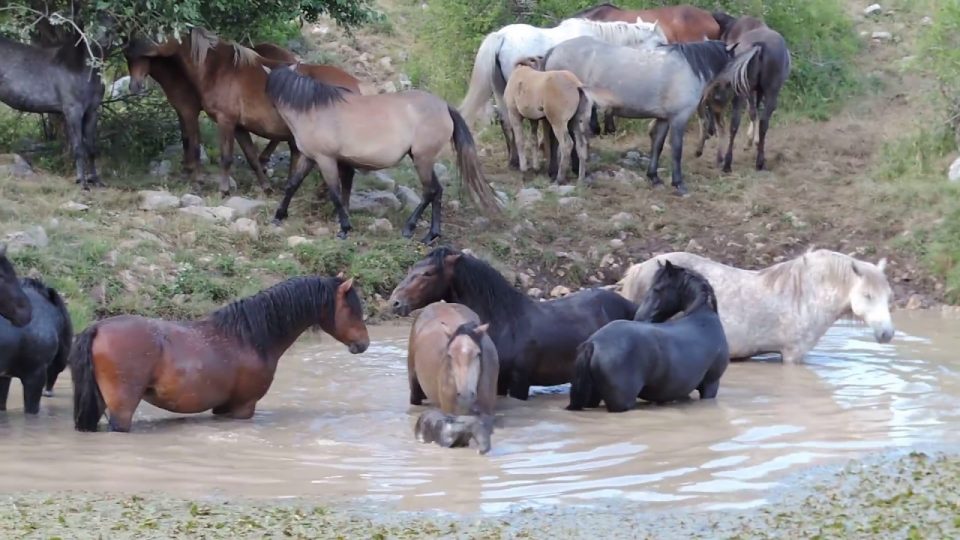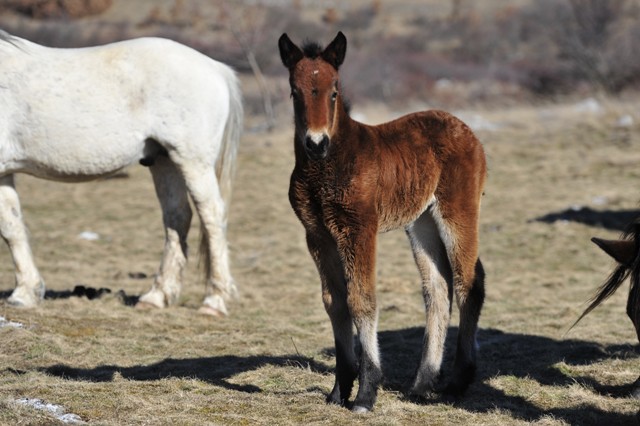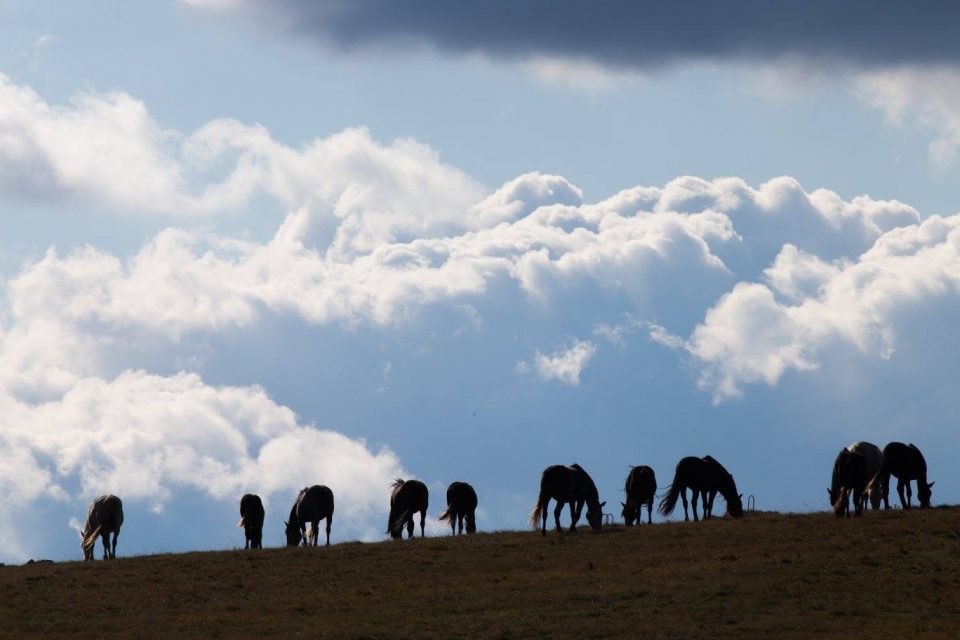
The foothills below Mount Cincar, not far from the town of Livno in southwestern Bosnia and Herzegovina (BiH), have been home to around 400 wild horses for nearly 50 years.
Photos and text by Sanela Tufekcic
The foothills below Mount Cincar, not far from the town of Livno in southwestern Bosnia and Herzegovina (BiH), have been home to around 400 wild horses for nearly 50 years. They have managed to adapt to the harsh weather conditions and survive poachers and predators for all these years. In a landscape of vast pastures and forests, these majestic animals are a unique phenomenon in this part of Europe.
Up until the 1950s, their ancestors were used for agricultural purposes, but when owners began using a more mechanized means of agricultural production, the horses became too great of an expense and were abandoned.
Although the wild horses of Livno mainly gather in the Krug plateau area below Mount Cincar, they have also been spotted traversing the Borova Glava mountain pass on the border between Livno and Kupres.
In the summer months, people who travel across the Cincar Mountains will have the chance to see the horses in their journey to find sustenance. The horses must also cross the main road along which there are two watering holes – the only source of water in an area with no rivers or lakes. Because water is so difficult to find, the watering holes were made explicitly for the horses by members of the Borova Glava Mountaineering and Ecological Society.

Crossing the main road, however, presents its risks. There was once an incident involving the mayor of Knin, a city in neighboring Croatia, when his vehicle struck one of the horses, leaving it with a broken leg. It is very difficult for a horse to recover from a broken leg. Thus, as is often the case in this situation, the horse had to put down. Although this was quite a tragic event, there was a silver lining. The incident brought a lot of attention to the herd and Livno’s Borova Glava Mountaineering and Ecological Society has taken extra measures to ensure that the horses are protected and cared for.
The local government has also taken an initiative to better protect the wild horse population by passing a regulation that makes hunting them illegal. Since the regulation was passed, there have been no reports of poaching. Previously, poachers were killing horses for their meat, so this comes as great news. Predators still present some problems for the horses, however, and there have been a few cases of wolves attacking the herd.

Livno’s wild horse population has risen from 286 in 2013 to 418 in 2019 with 65 new foals that were born in 2019. They have become an attraction to a large number of people who come watch and photograph them.
The horses currently have 145 square kilometers for grazing and living, which is sufficient to sustain the current population for now. The creation of a new watering hole, located at the base of Mount Cincar, is also underway.

Livno’s wild horses have become one of the area’s most popular tourist attractions and many visitors from across the world come to see one of the few instances of wild horses that still exists in Europe. Seven different herds have been identified and some horses have broken away from the herds to wander across the landscapes alone.
The Balkan Diskurs Youth Correspondent Program is made possible by funding from the National Endowment for Democracy (NED).







Victor Ros
Hi Sanela, Thank you for a very interesting and well written read on the Livno horses. I would like to learn more about the population numbers you provided in your article. I am hoping to visit the horses in the near future (once the Covid Pandemic passes). All the best and stay safe!